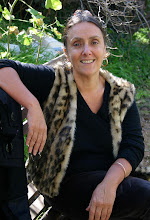 |
With the Great Barrier Reef at risk of damage by mining operations, I have been thinking about how much we have already lost . . .
I wrote the following story about the loss of the sacred in the everyday. It appeared in The Abacot Journal in 2007.
Say My Name
Like a soft, orange sari, the first light of the sun slipped over the horizon, a promise of clear skies and warm breezes.
An
old man stood on a bridge spanning the River Hooghly, his gnarled hands
clasping the rail. Dressed only in a ragged longhi, he sniffed the air
and squinted at the City of Palaces. The first breath of morning carried
the smell of the city: incense and frangipani, cow dung and the rancid
odour of clarified butter. Yet soon the air would fill with fumes from
the thousands of cars, motorbikes and buses thronging the streets of
Kolkata.
A
sound of flute music rode the breeze. The old man turned his head to
listen. A single tear rolled down his papery cheek. When the music
stopped, he shuffled off the bridge.
Making
his way slowly through the traffic, slipping easily between people and
cows, he passed by the market. Palm-leafed roofs covered the stalls.
Baskets overflowed with red carrots, mangoes, gourds, white radish,
pumpkin, and greens. The old man no longer expected gifts of fruit or
vegetables; nor did the stallholders offer any. In the old days, they
would have welcomed the chance to give food to a sadhu, but that was
before. Now the children had forgotten that sadhus were holy men; they
called them “beggars”, and tossed pebbles and insults at the saffron
robes. They forgot the names of the Gods.
In
the streets beyond the market, workers hurried to their jobs, mothers
shepherded their children to school. That, at least, was the same as it
had always been.
The
old man walked past the India Coffee House, where intelligentsia and
nostalgia rubbed shoulders. The patrons laughed and threw scraps to the
dogs, making them snarl and snap like wolves. Children watched from the
footpath, eyes big with hunger. Ignoring dogs and children, the old man
entered lanes that meandered between high walls topped with sharp teeth
of broken glass. A crow flapped noisily, chased from a rubbish pile by
rats.
Near
the river, the old man saw a child sitting on the front step of her
house, playing with a scraggly, ginger kitten. The girl’s hair gleamed
in the morning light, reminding him of black-haired maidens, and long,
lapis-lazuli nights of delight. He shook his head sadly. No more
goat-girls for him. No more girls at all.
He
walked all day, and into the night. When his legs buckled under him, he
slept beneath a Banyan, sheltered by the sacred tree. He rose before
the dogs, and continued his pilgrimage. The sun set and rose again
before he saw the domes of the Kali temple glowing pink in the morning
light. For a moment, he imagined rainbow-clad devotees pushing in
through the gateways. He could almost hear them, chanting and laughing.
He hurried towards the gate, hoping to find someone who remembered his
name. It had been so long since he had heard it spoken, in song or
prayer.
He
entered through the eastern gate, feet barely touching the ground. The
temple was deserted, but for dogs and monkeys. He wondered if they, too,
were waiting for the devotees who no longer came. He walked slowly
through the ruins, lured by the cool green of a giant Banyan. Older than
the oldest story, the tree sheltered the temple beneath its spreading
branches. Long, pink aerial roots moved gently in the breeze. The old
man lowered himself to the ground next to a discarded bundle of rags.
“What are you doing here, old man?” asked the bundle of rags, in a voice like pebbles in a dry riverbed.
“Resting,” said the old man, turning his back on the beggar-woman.
“Not here, you old fool,” said the beggar-woman. “Here. On Earth. Here.”
The
old man went very still. The beggar-woman’s voice had softened, like
water flowing, cool and sweet, from the mountains. He wanted to turn
back and look at her, but his longing had played tricks on him before.
He closed his eyes and sighed.
The beggar woman moved to sit before him. He opened his eyes to see a beautiful face, golden skin, just like…
“Parvati?“
“Who
do you think it is? Of course it’s me!” The rags fell away to reveal
the Goddess in all her glory: luminous eyes, black hair cascading around
her voluptuous body, henna-painted nails…
The old man began to cry.
“I know. I know,” said Parvati, voice soft as swanskin. She stroked his face. “They have forgotten us.”
“I thought I was the last,” said the old man. “I thought you had gone.”
“You were the last,” said Parvati. “I missed you. We all missed you. I came back to find you.”
“Say my name,” said the old man. “Let me hear it again.”
Parvati laughed. “Which name shall I say? There are so many! Adbhutah? Danavendra? Gyaneshwar? Sudarshana?”
And the old man remembered what it was to be a God. He straightened his back and took a deep breath.
“Say my name,” he said, eyes twinkling.
“Krishna,” she said, and handed him a flute.
He
played a note, pure and light. The stallholders at the market stopped
counting their money, and gave food to the poor. A gentle breeze lifted
the spirits of the workers. Mothers walked with swaying hips and a
secret smile on their lips. The child on the doorstep left her kitten to
dance, moving to a rhythm as old as time. Even the dogs pricked their
ears and stopped fighting over scraps.
“Come,” said Parvati. “The others are waiting.”
The God and Goddess left together, dissolving in the old way, like mist in the morning sun.
